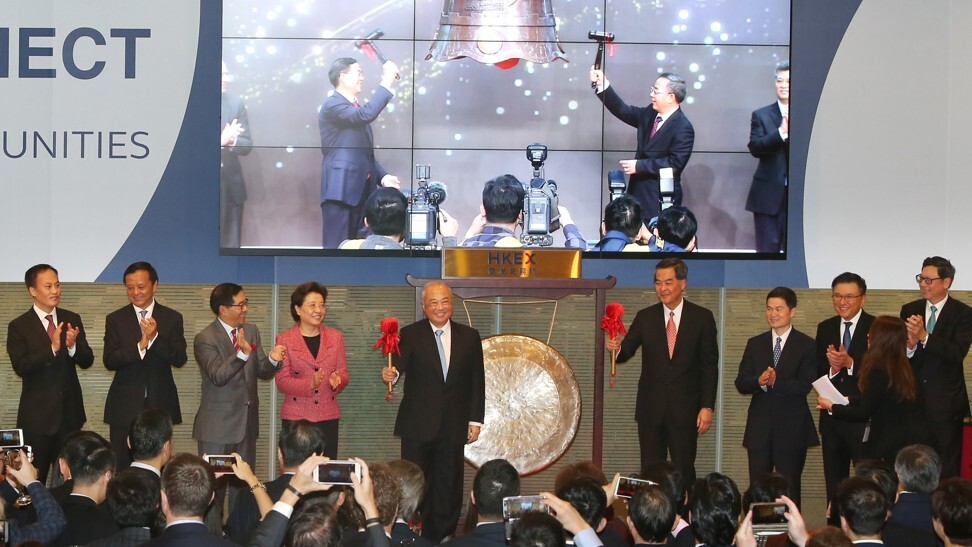
Former HKEX boss Charles Li’s new platform aims to provide finance to 10,000 small companies in mainland China
- Micro Connect may need to raise up to 10 billion yuan (US$1.5 billion) as it aims to provide much-needed funds to small businesses and enterprises
- International investors can invest through the platform in units that will allow them to share the revenues of the small companies
Micro Connect, launched last week by Charles Li Xiaojia and financier Gary Zhang, may need to raise up to 10 billion yuan (US$1.5 billion) from global investors in order to do this.
“Our investment in each of the small businesses can range from tens of thousands of yuan to a few million yuan.”
Li did not say exactly how much the firm is targeting from international investors, but assuming they invest an average of 1 million yuan in 10,000 companies, the platform would need to raise 10 billion yuan.
As well as offering direct financing, Li and Zhang will allow investors to buy units called “revenue distribution rights”. Their money will work like a private equity fund financing a big pool of small companies in China.
The companies wanting to tap that type of funding will need to agree to pay a certain percentage of their revenue on a daily or weekly basis over a set period of time to the investors.
The process will be done automatically through “connect and collect partners” (CC partners), which could be franchise operators for hotels, restaurants and shops, e-commerce platforms or SaaS (Software as a Service) companies which provide technology services to small businesses.
“We have to make sure our returns can be captured digitally by our CC partners who have control over the revenue streams of the small enterprises within their ecosystems,” Li said.
“We achieve risk diversification by investing in a very large number of small enterprises across many industries with low correlation. While we cannot prevent some small firms from failing, most of the companies within our highly diversified investment portfolios will continue to have healthy growth and provide stable returns for the overall portfolio.”
The business model of Micro Connect solves three major problems associated with investing in small businesses, according to Li, namely the lack of data transparency, the inability to reach a large number of investment targets, and the difficulty of standardising financing products.
“Thanks to digitisation, we are now able to reach many small companies on a large scale efficiently through our connect and collect partners and have access to revenue data as frequent as on a daily basis. This will help us quickly identify red flags when some firms do not perform as well as we expect,” he said.
Li, who turned 60 in March, was the head of Hong Kong’s bourse operator for 11 years before stepping down in December. He introduced the two stock connect schemes that allow cross-border trading between Hong Kong, Shanghai and Shenzhen as well as major listing reforms in 2018.

His company, with about 30 employees in Hong Kong and a few in Shenzhen, comprises a much smaller team than HKEX’s 2,200 staff.
Li has found more time to indulge his passion for his favourite sport since retiring from HKEX.
“Now, I spend 70 per cent of my time thinking of what to do and 30 per cent of my time executing,” he said. “I also have more time to play football every day.”

